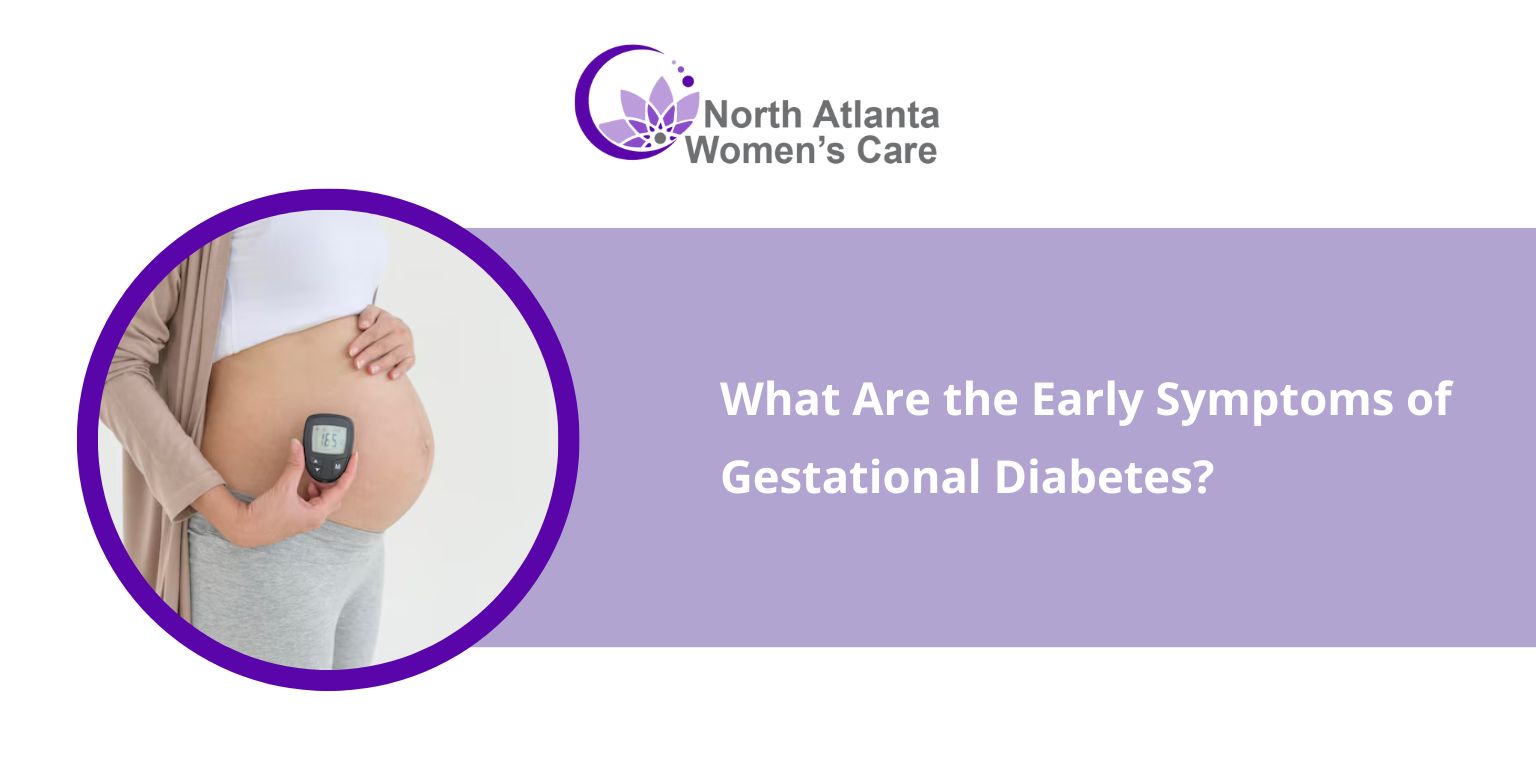What Are the Early Symptoms of Gestational Diabetes?

Gestational diabetes (GD) is a condition that affects some women during pregnancy, where the body struggles to regulate blood sugar levels. While it typically develops around the second or third trimester, understanding its early signs can help ensure timely treatment and reduce the risks for both mother and baby.
Let's explore the common early symptoms of gestational diabetes, how it's diagnosed, and how you can manage it to ensure a healthy pregnancy and care.
Understanding Gestational Diabetes
Gestational diabetes occurs when the body cannot produce enough insulin to meet the increased demands of pregnancy. Unlike Type 2 diabetes, which is a pre-existing condition, gestational diabetes develops specifically during pregnancy. Although it usually goes away after childbirth, it can pose serious risks to both the mother and the baby if left untreated.
GD is different from pre-existing diabetes in that it is temporary and only affects women during pregnancy. However, it can increase the risk of developing Type 2 diabetes later in life, making early recognition and management crucial.
What are the Early Warning Symptoms of Gestational Diabetes?
Recognizing the symptoms of gestational diabetes early can lead to better outcomes for both mother and child. Here are some common early symptoms:
- Frequent urination: As blood sugar levels rise, the kidneys work harder to filter out the excess glucose, leading to increased urination. This can be more noticeable during the night.
- Increased thirst: High blood sugar levels can cause dehydration, making you feel thirstier than usual. This can be a significant sign of gestational diabetes.
- Fatigue: Feeling unusually tired or exhausted is common when blood sugar levels are not well-controlled. High glucose levels can disrupt energy levels, leaving you feeling drained.
- Blurred vision: Changes in blood sugar can affect the fluid in the eyes, leading to temporary blurred vision. This symptom usually improves once blood sugar levels are stabilized.
- Increased hunger: Despite eating, some women may experience constant hunger due to insulin resistance. This can cause your body to crave more food than usual, even if you've recently eaten.
Monitoring these symptoms throughout your pregnancy is essential, as they can signal the onset of GD.
How Is Gestational Diabetes Diagnosed?
The most common way to diagnose gestational diabetes is through a glucose test during pregnancy (also known as the glucose challenge test). This test typically occurs between the 24th and 28th week of pregnancy, though it may be performed earlier if you are at higher risk.
During the test, you'll be asked to drink a sugary solution, and your blood sugar will be measured an hour later. If your blood sugar levels are too high, you may be asked to take a follow-up test called the gestational diabetes test, or oral glucose tolerance test (OGTT), which requires you to fast overnight before drinking a sugary solution and having your blood drawn multiple times over a few hours.
Risk Factors for Gestational Diabetes
While any pregnant woman can develop GD, certain factors increase the likelihood of developing this condition:
- Genetics: A family history of diabetes or gestational diabetes can increase your risk.
- Age: Women over the age of 25 are at higher risk.
- Weight: Being overweight or obese before pregnancy increases the risk.
- Lifestyle: Lack of physical activity and poor diet can contribute to the development of GD.
- Previous pregnancy complications: If you've had gestational diabetes or complications in previous pregnancies, you may be more likely to develop it again.
Managing Gestational Diabetes
Managing a gestational diabetes diet and staying active are key to keeping blood sugar levels in check:
- Gestational diabetes diet: A balanced, nutritious diet helps maintain stable blood sugar levels. Your healthcare provider or nutritionist will guide you on what foods to eat and avoid, focusing on complex carbohydrates, lean proteins, and plenty of vegetables.
- Exercise: Moderate physical activity, such as walking, can help improve insulin sensitivity and regulate blood sugar levels. Always consult your doctor before starting any exercise program during pregnancy.
- Medication: If diet and exercise aren't enough to control your blood sugar levels, your doctor may prescribe insulin or other medications to help manage your condition.
Potential Risks and Complications of Untreated Gestational Diabetes
If gestational diabetes is not well-managed, it can lead to complications:
Risks for the Baby
- Macrosomia: Considerable birth weight can make delivery more difficult and increase the risk of a C-section.
- Neonatal hypoglycemia: Low blood sugar may require immediate treatment after birth.
Risks for the Mother
- Increased risk of developing Type 2 diabetes later in life.
- Higher likelihood of preeclampsia or other pregnancy diabetes complications.
Take Control of Your Pregnancy Health with North Atlanta Women's Care
Gestational diabetes is a serious condition that requires early detection and careful management to ensure the well-being of both mother and baby. By recognizing the early signs of gestational diabetes and taking proactive steps to manage it, you can significantly reduce the risk of complications.
If you're pregnant and experiencing any of the signs mentioned, or if you're due for your glucose test during pregnancy, it's essential to consult your healthcare provider. Regular screenings, a well-managed diet, and exercise are key to a healthy pregnancy.
At North Atlanta Women's Care, our team is dedicated to providing expert care throughout your pregnancy. Don't wait, take action now. Schedule a consultation with our healthcare providers to get tested for gestational diabetes and ensure a safe and healthy pregnancy.
Contact us today to book your appointment and receive personalized care every step of the way.
Be the first to post a comment


Leave a Reply Cancel reply